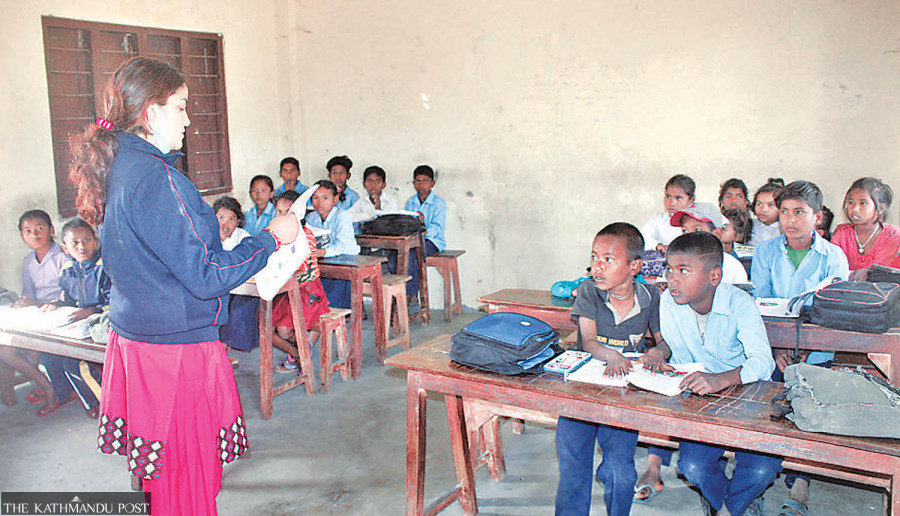Editorial
Time to let go
Local governments should be empowered enough to shoulder the responsibility of education.
Nepal's local level governments, after completing their first term, have translated the idea of federalism into action. What’s more, their performance in the very first term, when they were still learning the basic tenets of decentralised democracy, cannot be termed unsatisfactory at all, despite having to face the undemocratic manoeuvres of federal institutions during the same period. But if there is one sector that has failed to bear fruit from Nepal’s transition to federalism, it is education. Not only has the government failed to draft a federal education bill, it has yet to come to terms with the fact that secondary level education is now a constitutionally mandated prerogative of local governments.
It was this lamentation about the dispersal of power to the local levels that Yadav Koirala, secretary at the Ministry of Education, exhibited when he responded to queries from lawmakers about the status of secondary education in Nepal. He was of the opinion that the local levels lacked the ability to manage secondary level education despite a constitutional mandate, even calling the decision to hand over the responsibility to the local levels a "mistake". No matter how hard the bureaucrats try to explain otherwise, there is no running away from the fact that the local levels should be empowered enough to shoulder the responsibility of educating Nepal’s children.
The fascination of federal authorities to overstep their jurisdiction, rather than contribute to the decentralisation of education, is unwarranted, for there is no going back on the decision. The most they can do, or are even expected to do, is to help transfer knowledge and good practices by training the authorities at the local levels. After all, the goal of education administrations, be it at the local or the federal level, is the same: To buttress the foundation of education for the future. Too keen to shift the blame onto others, the federal authorities, though, have failed to press for the federal education bill that has remained pending for far too long already. A progressive bill would do much more towards improving Nepal’s education sector rather than moaning at the transfer of the mandate to educate the children to the local levels.
There is no doubt that the local levels have not performed up to the mark when it comes to education, for they have been too busy spending on infrastructure development for the past five years. This is the result of their failure to grasp the gravity of the responsibility bestowed on them. They are certainly responsible for recognising the power they have to shape the future, but federal institutions also need to go beyond self-centred interests and educate the local levels about their roles and responsibilities. Educating the country is a serious responsibility, and the federal and local governments should work in tandem to fulfil it.
Federal education administrators cannot continue to act like competitive students during the board exam who hide their exam papers so that their fellow classmates cannot copy them. The education system is not a competitive exam; at the core of the idea of education is the philosophy of shared knowledge. Administrators at all levels of the government should come together to achieve the higher goal of propelling the country towards growth through an exchange of expertise and innovation rather than pulling each other down.




 20.9°C Kathmandu
20.9°C Kathmandu














